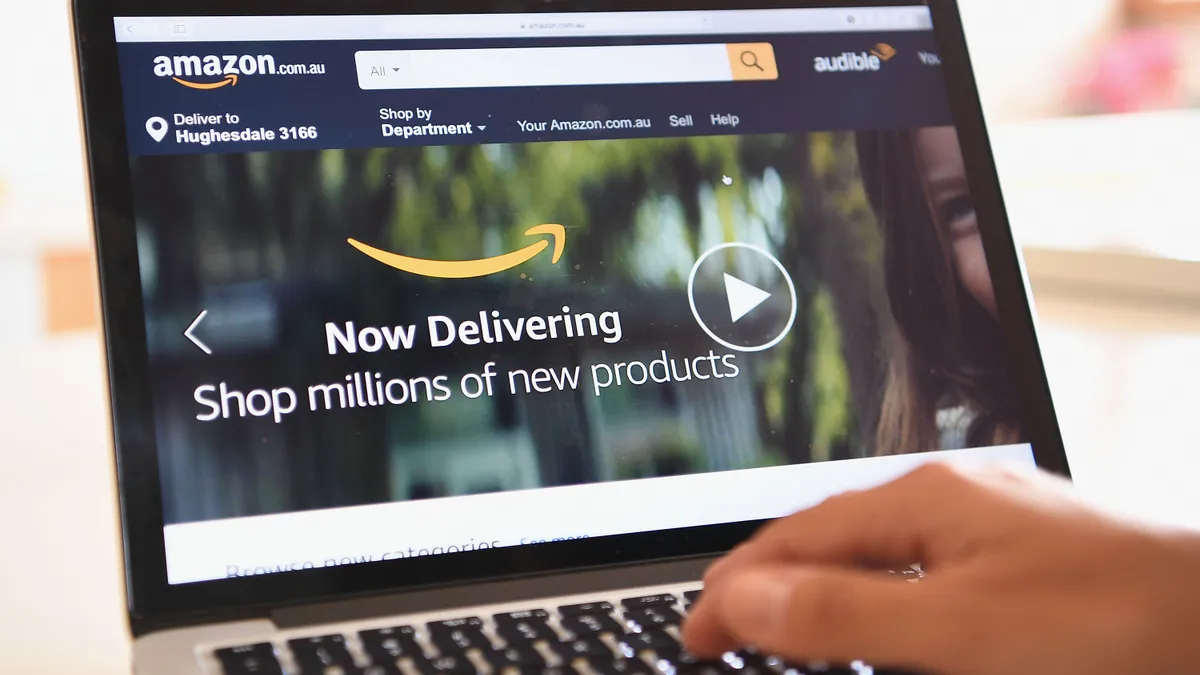Dive Brief:
- Consumers view ads on Amazon as more relevant and engaging than those on other leading digital media platforms, putting the e-commerce giant at the top of Kantar’s latest Media Reactions report. The analysis ranks channel perceptions among both consumers and marketers.
- Amazon unseated TikTok for the No. 1 spot in the annual analysis, though ByteDance’s video-sharing app is still seen as more fun and innovative than competitors and landed as second-best. Spotify climbed four spots to the No. 3 slot, with the top five rounded out by Google and then Snapchat.
- Influencer marketing replaced podcast ads as the online format carrying the most equity, a reversal of 2021 trends. Even as marketers are primed to increase their digital investments in several areas, including the metaverse, consumers for the third year running favored “real-world” offline advertising the most.
Dive Insight:
There’s been a substantial shift toward performance marketing channels over the past year or so, embodied by the surge in retail media networks that leverage wells of shopper data to better target campaigns. Just as brands have allocated more spending in marketplaces where sponsored product and display listings can be linked with e-commerce sales, consumers, too, seem to be coming around to the idea.
Amazon led Kantar’s third annual Media Reactions report, with respondents finding ads on the service more relevant, useful and of better quality than those served elsewhere. The tech giant is aware this is a burgeoning strength and has started calling out ad sales gains to investors.
Amazon’s advertising services segment, which it started breaking out in earnings at the start of 2022, grew 18% year-on-year to $8.76 billion in the second quarter. E-commerce ads came in at number two overall in terms of equity with consumers in Kantar’s report, behind influencer marketing and ahead of podcast ads, which dropped two spots from last year.
While Amazon topped the Media Reactions rankings on a platform basis among consumers, TikTok continued to hold the crown of most innovative for the third year. The app broke into the mainstream during the pandemic thanks to a scrolling video feed powered by an ingenious algorithm that creates viral trends overnight.
Consumer perceptions contrast with that of marketers, who ranked Instagram as their preferred media brand for the second year in a row followed by Google, YouTube (which Google owns) and then TikTok. Instagram is comparatively mature in relation to advertising, but recently enacted a pivot to video and pushing more recommended posts that proved frustrating to users and influencers alike. It rolled back some changes following strong backlash.
TikTok, which is owned by Chinese tech conglomerate ByteDance, has become a flashpoint for controversy in its own right for data privacy and security reasons. That has not warded off marketers eager to reach a global audience that tends to skew toward the younger crowd. Eighty-four percent of marketers polled by Kantar plan to up their spending on TikTok in the months ahead.
“Last year, marketers were wary of placing trust in TikTok as it was a rising platform — but this year TikTok hit the sweet spot of maintaining its innovation status whilst having earned marketers' trust,” said Pablo Gomez, head of creative and media at Kantar in Singapore and APAC media lead, in a statement. “As a result, more marketers are planning to spend more on TikTok than any other global ad platform in 2023."
TikTok’s mastery of short-form video has spurred rivals like Instagram, Facebook, YouTube and Snapchat to quickly introduce copycat features. Marketers, in turn, are chasing the boom.
Online video, video streaming and social media stories are the top three channels set to receive a net increase in budget allocations between 2022 and 2023, per Kantar. A net 61% of marketers are also ramping up activity in the metaverse, a concept that’s garnered a lot of buzz but has yet to be proven at scale or meaningfully realized on the technology front. Kantar indicated that some of this focus could be misplaced in a challenging macroeconomic environment marked by inflation and volatile media trends.
"Marketers continue to be lured by the siren call of the new and shiny, such as embracing attention as a new metric and the metaverse as a new channel — but it is imperative to maintain a holistic understanding of ad platforms and what consumers think of them," said Jane Ostler, executive vice president of creative and media solutions at Kantar, in a statement.















